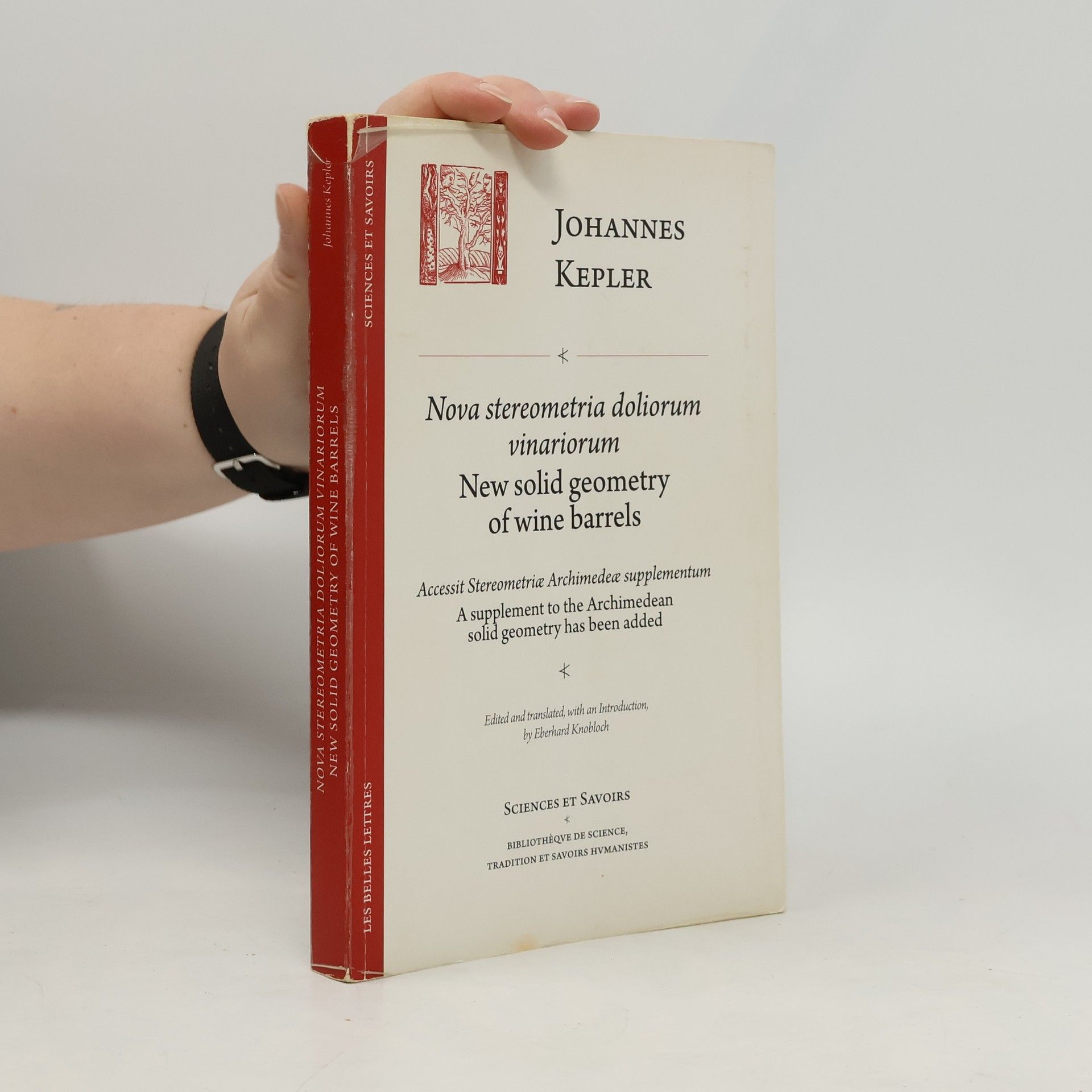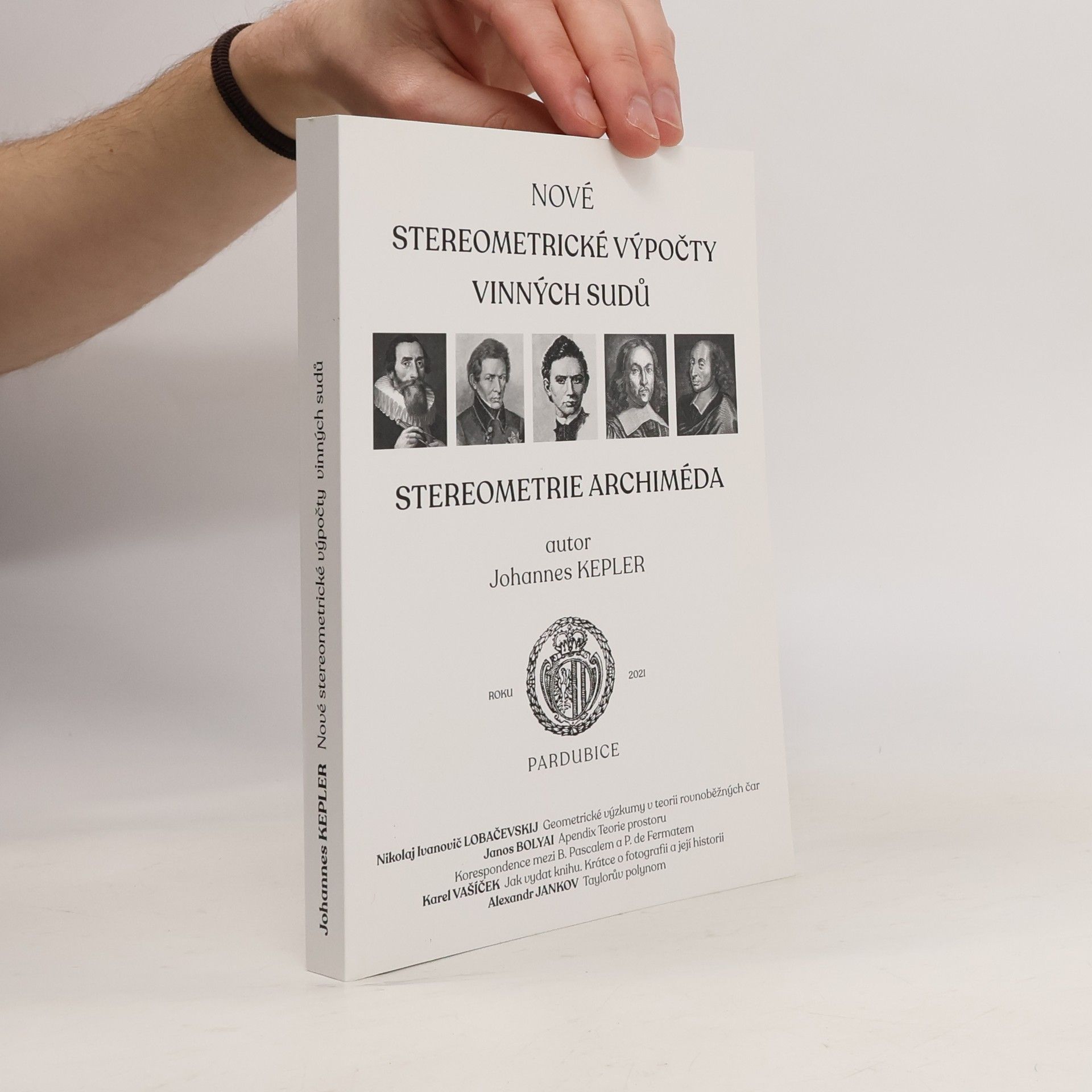Nové stereometrické výpočty vinných sudů
- 328 pages
- 12 hours of reading
Poprvé vychází česky Keplerův text o výpočtech objemů vinných sudů. Tento text vyšel německy a rusky, nevyšel kupodivu ani anglicky. Jde o příspěvek Keplera k vytvoření integračních metod ještě před vytvořením diferenciálního a integrálního počtu Leibnizem a Newtonem. K tomuto Keplerovu textu jsou připojeny texty o neeukleidovské geometrii Lobačevského Geometrické výpočty v teorii rovnoběžných čar a Janose Bolyaie Apendix Teorie prostoru. Dále je připojena korespondence mezi Blaisem Pascalem a Pierrem de Fermatem, která je považována za počátek teorie pravděpodobnosti. Další texty v knize jsou rady pro začínající vydavatele Jak vydat knihu? A Krátce o fotografii a její historii a práce Alexandra Jankova Taylorův polynom.













